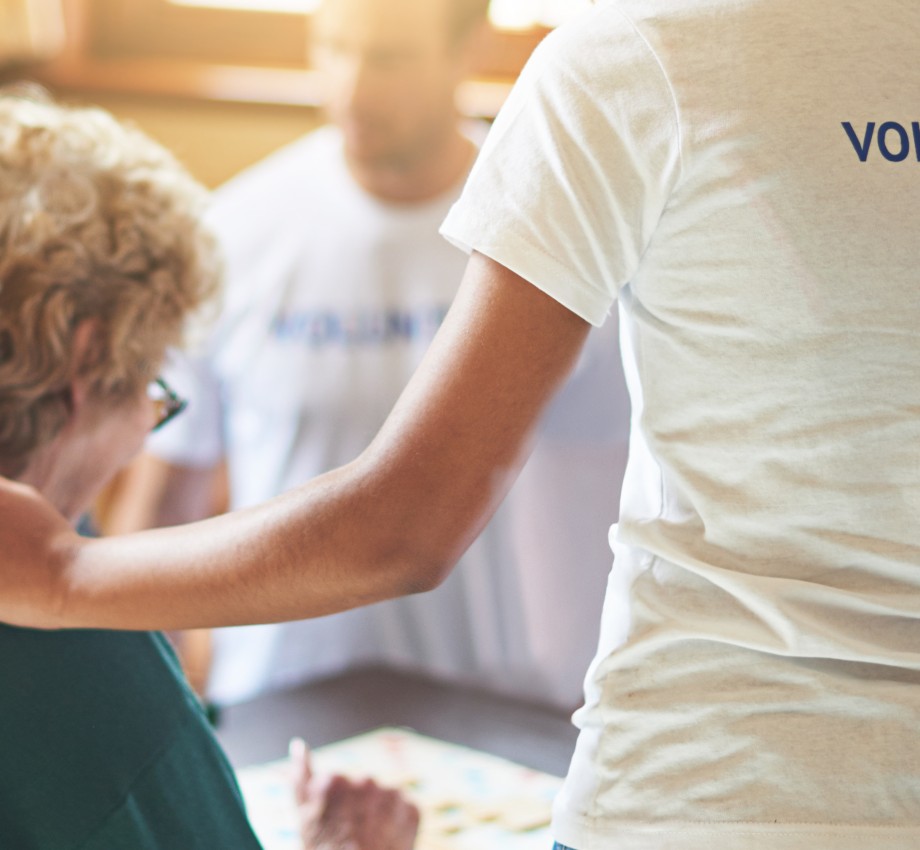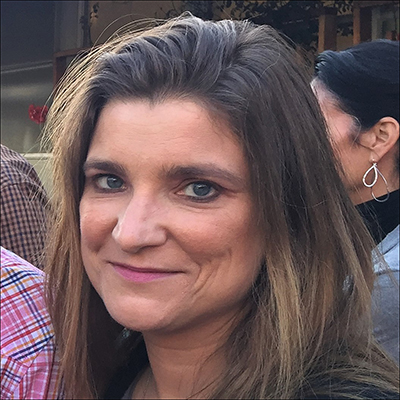Health Care Dream Fulfilled Through Advocacy Role

Cara Sperry was about five years into her job as a vocational trainer at Computer Technologies Program in Berkeley, when her brother, a U.S. citizen, suffered a fall while living in South Korea. That fall led to a coma. Though her 36-year-old brother had the foresight to set up an Advanced Care Directive (ACD), South Korea would not honor it. [Editor’s note: As of November 2017, South Korea has started a pilot program that is supposed to honor confirmed directives. ]

“Yet my brother, who would be in a coma for the rest of his life, was tirelessly operated on—without giving consent, but with the full expectation of payment by his family,” Sperry recalls.
Not only was her brother’s ACD not being honored, South Korean doctors and American neurologists provided the family with conflicting information on his condition. “Korean doctors were saying my brother could ‘wake up any day,’” Sperry says, “while American neurologists who had reviewed CT scans and MRIs told our parents and me that there was no hope whatsoever for a recovery.
“This discrepancy in information became a huge challenge when he was transported to the United States after four months of treatment,” Sperry continues. “It was with the expectation that my brother was being brought home to pass with dignity, but my sister-in-law initially resisted the advanced health care directive. I became the advocate for my brother's documented wishes, which were honored in short order.”
“This experience had me reading a lot of stories about ethical dilemmas in health care, including ‘orphaned adults’ with no voice—and no one designated to be a voice,” says Sperry. “My brother was not a senior, but most of the people with no voice who need help are. I realized that I wanted to find a place in that space to be useful, and I sought out a way to become more educated about the career options. Although I didn't want to become a traditional health advocate (that is, someone who supports clients during medical appointments and in discussing care options), I did want to be an advocate in the health field—and that is why I chose the health advocacy program at UC Berkeley Extension.”
“I was forced to really consider other points of view, which has been enormously important as an advocate, who must keep personal opinions out of the job.”
—Sperry on the importance of Ethical and Legal Issues in Health Care
Starting From Scratch
While Sperry acted as a health advocate during her brother’s illness, she knew that in order to successfully transition into becoming a knowledgeable advocate, having in-depth course content was key. She needed a useful introduction and a solid foundation in skills necessary to make a positive impact. Three courses greatly influenced her career path: Introduction to Health Care Advocacy, Case Seminar on Health Advocacy and Ethical and Legal Issues in Health Care.
The courses also brought her past and future together. Case studies, required readings and class discussions enhanced her learning experience and covered a range of health-advocate scenarios.
Sperry adds, “Introduction to Health Care Advocacy instructor Joanna Smith picked terrific books. One, in particular, focused on cultural differences, which was quite relevant to my personal experience with my brother. In the Case Seminar course, instructor Linda Adler broke down advocacy roles and made excellent distinctions between social workers and advocates that had not been clear to me before. And Jim McCabe’s course, Ethical and Legal Issues in Health Care, was so insightful and fun; I lucked out when we blindly drew topics for debates. I drew assisted suicide, and I had to argue against it—a position I don't personally hold. I was forced to really consider other points of view, which has been enormously important as an advocate, who must keep personal opinions out of the job.”
From Coursework to Internship to Full-Time Position
A graduate of the program in fall 2016, Cara began her advocacy career with a well-timed volunteer opportunity presented in the Navigating the Health Care System class and a supportive mentorship within the Ombudsman organization.
“After an Ombudsman visited one of our classes and explained how the role related to health care advocacy, I became a volunteer for Ombudsman Services of Contra Costa County,” says Sperry. “I never planned on being a paid Long Term Care Ombudsman; I thought the experience as a volunteer would be a useful supplement to the classroom material. I was assigned a mentor in the Ombudsman program.”
Mentorships and hands-on learning through volunteering are important to understanding the Ombudsman role. Sperry says that all counties have long-term care Ombudsman programs to apply to, if the field appeals to you. “If you are willing to commit to at least a year, I strongly encourage you consider volunteering in the role; it will really help put coursework in perspective when you are in the field. Hours can be quite manageable. I was taking classes and had a job, as well as being a single mom, and I was able to do it. Different Ombudsmen have different workloads depending on their availability. My volunteer obligation was approximately 10 to 20 hours a month.”
Nine months into that volunteer position, Sperry’s mentor, Nancy O’Keefe, announced her retirement and Sperry was offered O’Keefe’s position as a regional supervisor to West Contra Costa County. Today, she mentors volunteers in her organization, as well as guides staff at the residential facilities in her region.
“I am in the field a lot; I cover 70 facilities in West Contra Costa County but I only have a few volunteers for my region,” she says. “It is important that my volunteers know what to do in a variety of situations. One of the roles as an Ombudsman is to coach facility staff who fall into a pattern of treating seniors without the dignity they would give other adults. We try to resolve every single complaint. Additionally, we look into elder financial abuse cases and mediate billing disputes; investigate physical and sexual abuse complaints; problem-solve family or facility staff conflicts; assist with placement options and prevent unfair and improper discharges or evictions; and provide information and education to the community on issues associated with aging, such as dementia care, Med-Cal and MediCare. We constantly educate facility staff—and often family—through consultations and in-service trainings with regard to residents’ rights and their lives.”
One of many terms Sperry is inundated with in her work is “activities of daily living,” or ADLs—a term she had not known existed until her Health Advocacy education, and one that is emphasized in the introductory course. ADLs can dictate placement and pricing in residential care facilities for the elderly (RCFEs). “It is really important to have those foundational terms memorized,” Sperry says. “The material in the classroom is definitely relevant to the job, and I would not have this job if it weren't for the program.”
Get Your Foot in the Door
“Volunteering is the most unentangled way of learning about a field without committing to an institution's stance,” Sperry enthuses. “Take my experience: When it comes to seniors and health care advocacy, if you are unsure about the niche you want, I don't know of any other role that covers so many issues as Long Term Care Ombudsman.
“We work with Community Care Licensing and the Department of Public Health, Adult Protective Services, senior legal services, HICAP for insurance, hospice centers, Family Justice Center, Alzheimer's Association and assist with Advanced Care Directives. Most of these organizations also need volunteers, so investigating causes that sound like a good fit is essential to your happiness and success in health advocacy.”